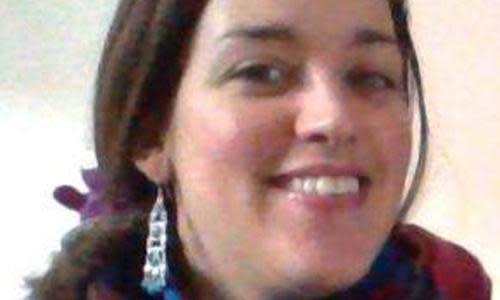Charlotte Bevan death: 'intimidated' health workers backed off from case

Health professionals “backed off” from dealing with the mental health issues of a new mother who was later found dead in a river gorge together with her four-day-old daughter because she was middle-class and they found her intimidating, a review has said.
Professionals had found it difficult to deal with Charlotte Bevan, who walked out of a hospital unchallenged, because she was articulate, middle-class and could be hostile, the serious case review (pdf) concluded. It added that a focus on her needs meant that the safety of her child was not prioritised.
Bevan, 30, who had stopped taking antipsychotic medication to breastfeed, walked out of St Michael’s hospital in Bristol in December 2014 with her baby daughter, Zaani Tiana Bevan Malbrouck. Mother and daughter were found dead in the Avon Gorge with injuries consistent with a fall.
The serious case review, published by the Bristol Safeguarding Children Board, flagged up shortcomings in the care provided to mother and daughter. It said a string of changes had been made ranging from tightening security at the hospital to a new service for pregnant women and new mothers with mental health problems.
It said: “Professionals appeared to be more focused on the needs of the adult rather than the unborn child … Opportunities were missed for professionals to be supported to identify and tackle child-protection issues.”
The report added: “Professionals lost focus on the unborn child, allowing barriers to communication and information sharing to restrict their practice.”
One of the eight findings was that professionals may have been intimidated by Bevan. “When confronted with [her] unpredictability or hostility, many professionals ‘backed off’ from the confrontation, leaving the issue for another time or another professional to handle without a clear documented plan of how to address these issues,” the report stated.
It flagged that there was no lead clinician across different services that worked with vulnerable adults, including those who were pregnant. “This means that case management for service users with complex needs lacks coordination,” it said.
The report also suggested there was confusion between different experts over terms such as “well”, “stable” and “recovering” used to describe Bevan. “For example, the use of the word ‘well’ was used by a variety of professionals. In each case it meant something different,” the report said.
Sally Lewis, the independent chair of BSCB, said there was not “one act or omission” that would have realistically prevented the deaths. But she said: “If all the recommendations were in place we believe that would have made it preventable.”
Lewis said professionals were “inappropriately focused” on the needs of Bevan and not on her baby, Zaani. “Some of the frameworks and structures around adults are more geared towards personal choice,” she said.
Changes that have been made include a review of ward layout and security at St Michael’s to prevent women leaving the ward unchallenged.
A new service for pregnant women and new mothers with a high risk of having mental health problems was launched in February. The Specialist Community Perinatal Mental Health Service will operate in Bristol, south Gloucestershire and north Somerset.
Bevan’s mother, Rachel Fortune, urged those with mental health problems to seek advice and support. She said: “As you can quite clearly see from the report, no single thing, action or person was to blame. This was a particularly difficult case to manage as long-term ill mental health and pregnancy came together.
“It’s our hope now that any families and individuals facing such difficulties will now have a multiagency team with accountable clinicians in each service, as they now do in Bristol.”

